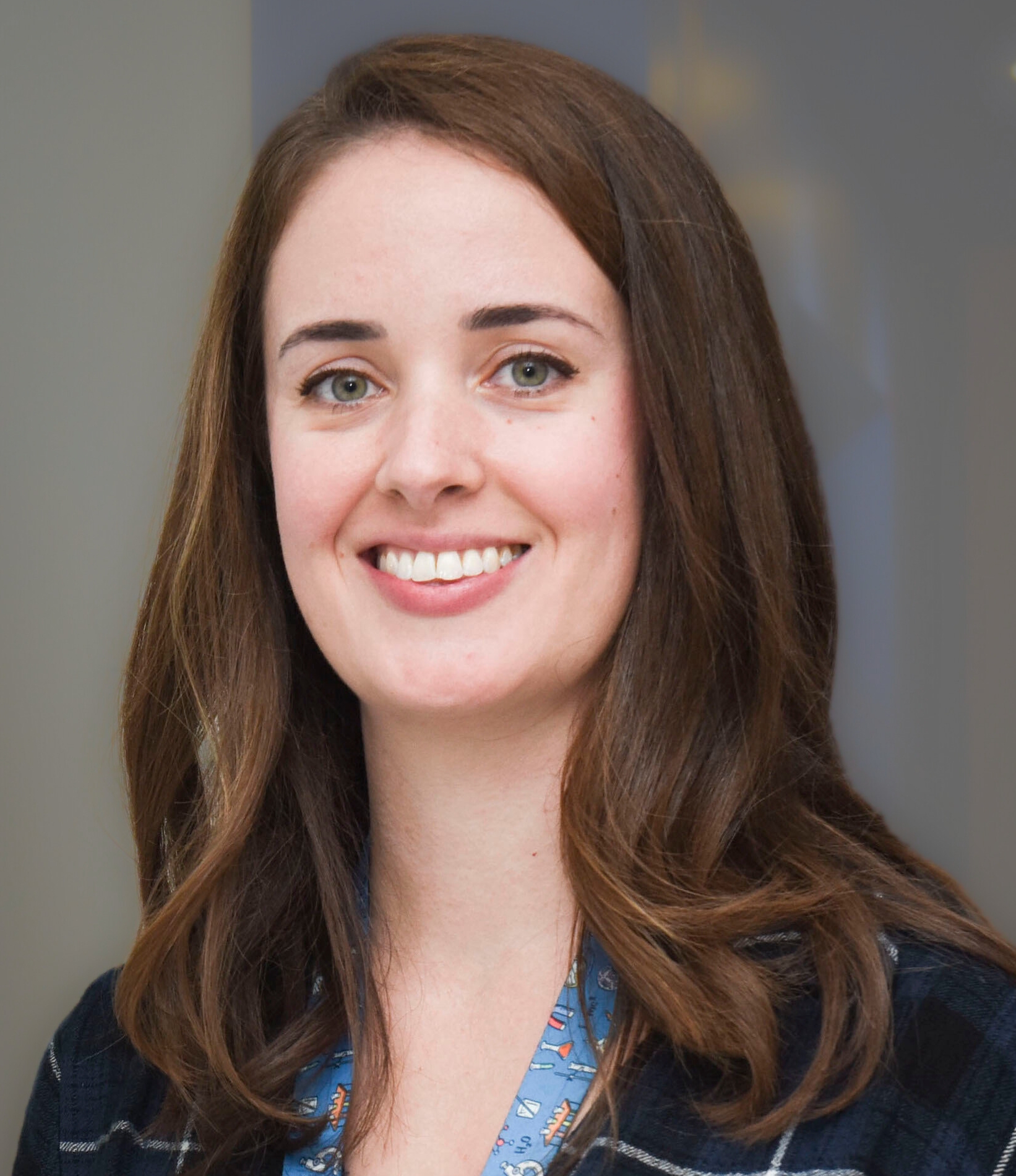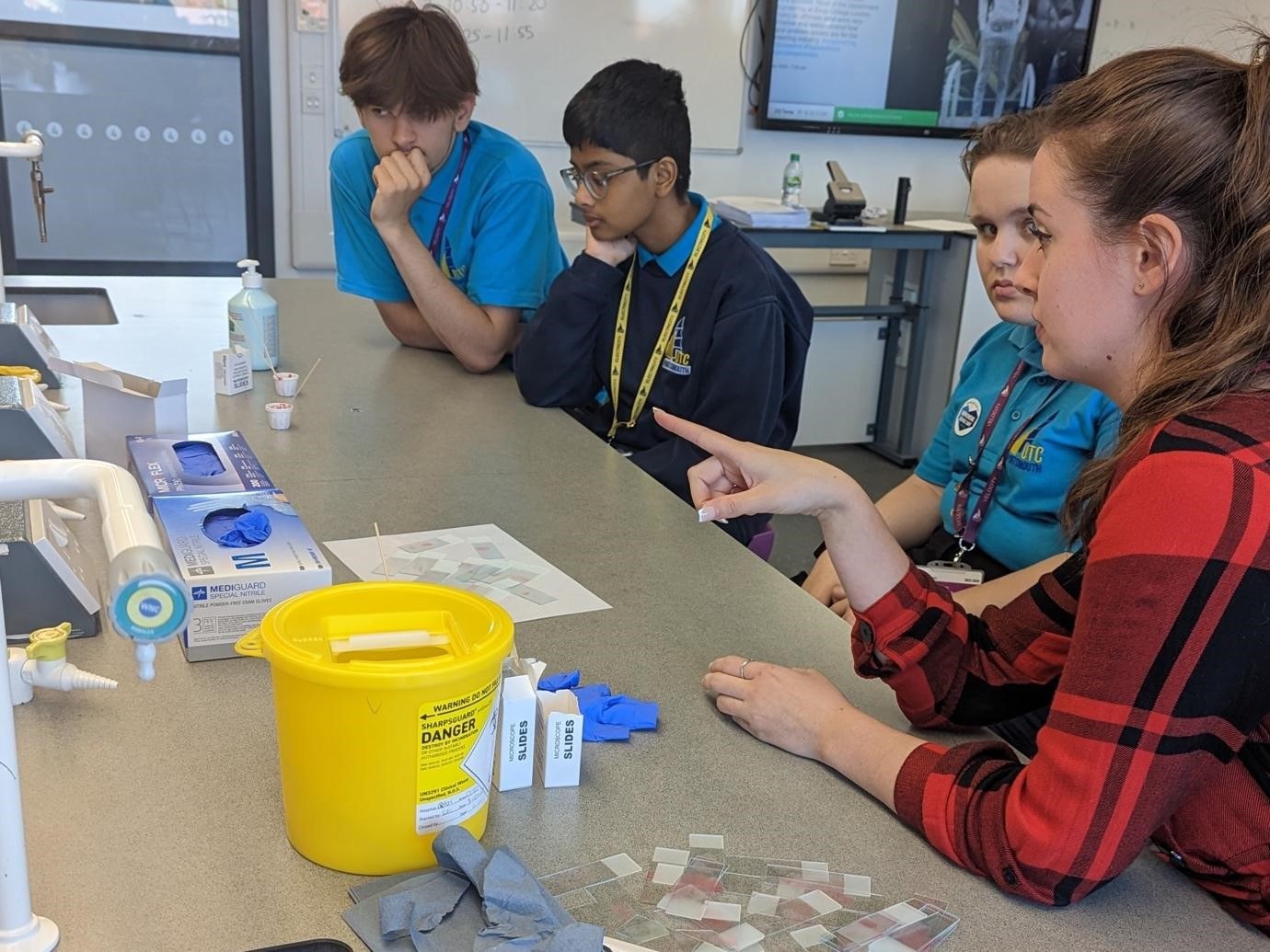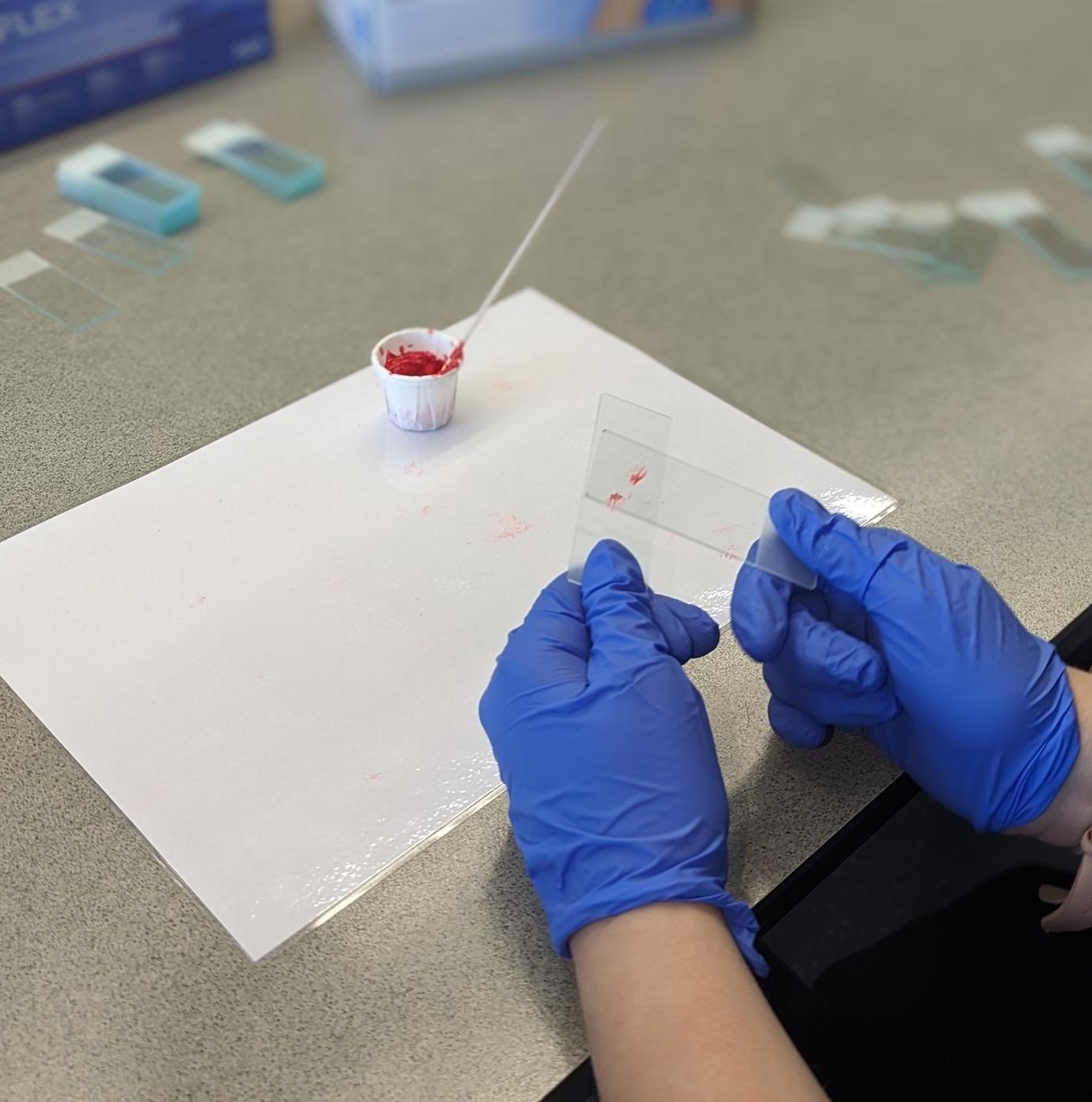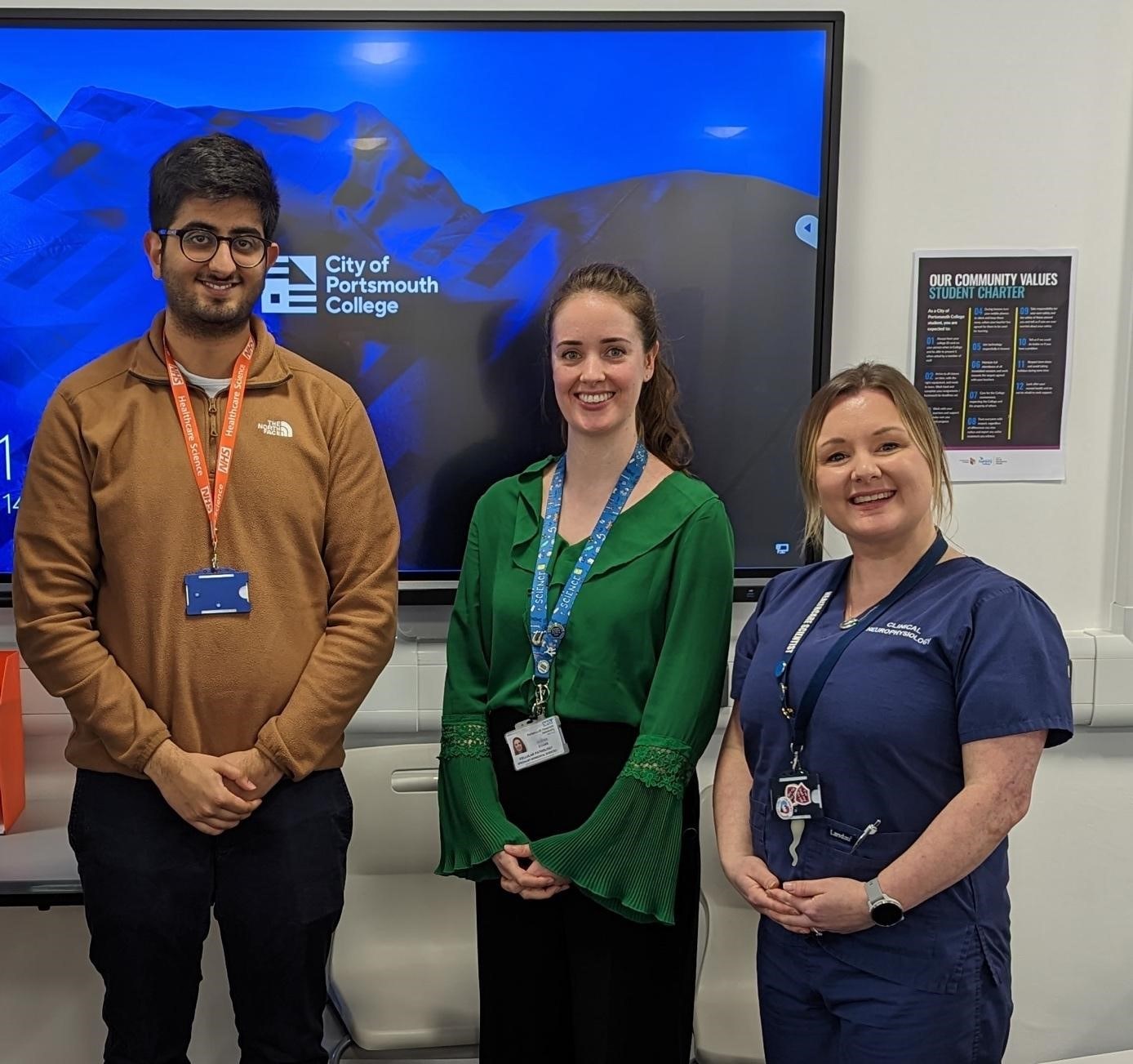Reflecting on Healthcare Science Week 2024
Karina Evans - Portsmouth Hospitals University Trust

This year’s Healthcare Science Week occurred between the 11th and 15th
of March. As always, Healthcare Science Week is an opportunity to showcase and celebrate the indispensable role that healthcare science plays, with ~70-80% of all hospital diagnoses made possible by the dedication and innovation of healthcare science. During the COVID-19 pandemic, healthcare science stepped out from behind the scenes and into the spotlight. We must continue to utilise every opportunity to advocate for and promote healthcare science, and those who work within it, from Medical Laboratory Assistants to Consultant Biomedical Scientists, we are all champions of healthcare science.
A quick search on X/Twitter for the hashtags #HSCWeek2024 and #HealthcareScienceWeek2024 demonstrates that many healthcare science disciplines are engaging with the public, but could we do more to raise the profile of cytology? As we celebrate the present achievements of healthcare science, we must also nurture and inspire the next generation of scientists. Inspiring young minds to pursue a career in cytology is key to future innovations and ensuring a sustainable workforce. I have worked in many different cytology laboratories over the years, and my first experience of a cytology department actively engaging with local schools and colleges to raise awareness of healthcare science and promote career pathways, is at my current laboratory at Portsmouth Hospitals University Trust (PHUT).
Showcasing cytology
During Healthcare Science Week, my colleague, Laura Wilson, a Specialist BMS in cytology, and I had the opportunity to spend a morning with students from UTC Portsmouth. UTC Portsmouth is a college specialising in teaching STEM subjects alongside the national curriculum to young people aged 14-19.
We wanted to make the session interactive to capture the student’s attention and make it a fun experience. Throughout the morning, we spent time with around 40 students. As we received each group, we had a quick discussion about what cytology is, how it can identify precancerous, cancerous, infective and inflammatory pathological conditions and how cytology assists in managing and planning patient care. We then separated the groups. I explained how we extract the cells of interest from fluid samples via centrifugation and helped the students learn how to spread a ‘sample’ onto a microscope slide using different techniques. With Laura, the students had to match flashcards into sets; each set had a body part, sample type, cells and an associated pathological condition. To make it fun, we made it a competition; the students who matched the flashcards the fastest in each group won some chocolates. After all, it wouldn’t be an authentic cytology experience without chocolate!
This is what Laura had to say about being involved in Healthcare Science Week 2024: “Being able to inspire the next generation of potential Cytologists is a privilege to be involved in. Delivering scientific workshops to students who may not know what cytology is or the available career opportunities, is one of the best ways to educate and encourage others. With over 25 years of laboratory experience in different pathology disciplines, being able to share my knowledge and working practices with others as part of a teaching programme is something I find so rewarding. Taking part in promoting scientific career opportunities and watching the enthusiasm from the students while teaching them, gives you a real sense of achievement”.



Promoting career pathways
PHUT was also invited to give career talks at City of Portsmouth College. I especially enjoy discussing the different healthcare science career pathways, as my route didn’t follow the traditional college-university-job pathway. When I dropped out of A-levels, I thought my career opportunities were limited, but instead, I found a supportive employer who recognised my potential and supported my progression. There are now many more pathways into a healthcare science career, from T-levels to apprenticeships and employer-sponsored degrees. It’s vital that students are aware that there is more than one way to achieve their potential!

Behind the scenes
To finish Healthcare Science Week, we gave a laboratory tour to a group of T-level healthcare science students from Havant and South Downs College. During the tour, they were able to gain an understanding of what cytology is, how we process samples, the different pathologies we may be able to identify in a sample, and how this benefits the patient and their management pathway. To make it an interactive experience, each student was given a lab coat and gloves to wear whilst looking at different cell types using a microscope and practising how to spread cytology slides using hand cream and food colouring.
Continued professional development
Engaging with local schools and colleges is a fantastic opportunity for cytology laboratories to foster awareness and enthusiasm for the discipline. From interactive workshops to laboratory tours and educational presentations, there are many ways to engage and inspire curiosity among students. In addition, by building partnerships with educational institutions, cytology laboratories can become beacons of knowledge and encourage budding scientists; this benefits future generations and is also a unique CPD opportunity. Sharing and discussing our expertise and knowledge with others can refine our communication skills, help us gain fresh perspectives, and gain a sense of fulfilment and purpose.
As my reflection on Healthcare Science Week draws to a close, our focus as a scientific community can shift to another opportunity to advocate for cytology - Biomedical Science Day is June 6th, 2024. In the lead-up to Biomedical Science Day, we urge you to champion cytology, so get planning those public events and educational talks, organise a tour of your laboratory, make some posters, and bake some cakes! Raise awareness and show everyone how exciting cytology can be!
How will you celebrate Biomedical Science Day? Tag us on X @britishcytology and LinkedIn @British Association for Cytopathology, and let us know!
All images with students in have been shared with permission from Julia Holt, Head of Marketing & Admissions at UTC Portsmouth.
